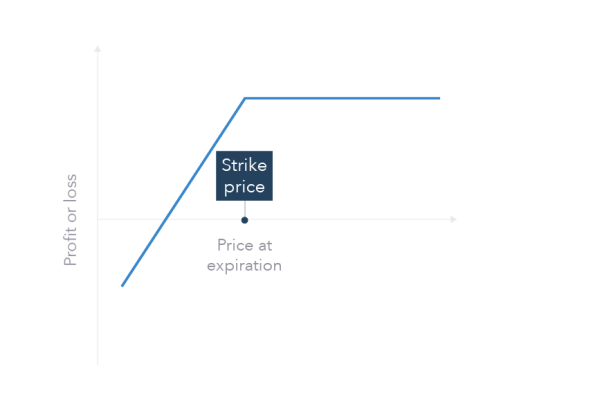In recent years, Artificial Intelligence (AI) has undergone a profound transformation, revolutionizing various industries and improving our daily lives. Nevertheless, the advancement of AI is bounded by the constraints of classical computing. Why should you be interested in this topic? You can enter the realm of Quantum Artificial Intelligence, a pioneering discipline that fuses the principles of quantum mechanics with AI, promising to unlock the future of computing. In this article, we delve into the potential of Quantum AI (not to be confused with the Quantum AI App) and its pivotal role in shaping the future of technology and innovation. Here is all that you should know!
Quantum Artificial Intelligence: Unlocking the Future of Computing: Top 7 Things You Should Know
- So, How Does AI Help With Computing?
AI makes computing better by doing tasks automatically and helping us make smart choices, especially if we can’t make up our minds on a given topic. It looks at big data to find important information, stops machines from breaking, and keeps our computers safe from threats from any kinds of external factors and hackers. AI also understands how we talk and personalizes our experiences with technology. It’s like a smart assistant that helps computers work faster and smarter, changing how we use technology in many ways. Nowadays, it is a trustworthy resource that is a go-to for many people.
- What Is Quantum Artificial Intelligence?
Quantum Artificial Intelligence, known as Quantum AI, is a cutting-edge field that combines quantum computing and artificial intelligence. It uses the unique features of quantum mechanics to solve complex problems faster and more efficiently than a human can. Quantum AI has the potential to tackle challenging tasks that were once considered impossible, like optimizing supply chains and accelerating drug discovery. As quantum technology continues to advance, we’re on the brink of a new era of technological innovation, where Quantum AI can provide solutions to some of our most pressing issues with unprecedented speed and effectiveness. While there are still challenges to overcome, Quantum AI is an exciting frontier in the quest for more powerful and capable computing systems. In time, it will definitely reach its full potential, while right now it is still practical and useable.
- The Quantum Revolution
Quantum computing, rooted in the principles of quantum mechanics, represents a revolutionary departure from classical computing. Classical computers rely on bits, which are binary units represented by 0s and 1s. In contrast, quantum computers harness quantum bits, or qubits, which possess the remarkable property of superposition. This attribute enables qubits to exist in multiple states simultaneously, empowering quantum computers to perform intricate calculations at a velocity and magnitude far surpassing classical counterparts. It may sound tricky or hard to understand at first, but it is actually very simple once you get the hang of it. if you are a rookie it might be a bit hard for you to wrap your head around this concept.
- Integrating AI into Quantum Computing
Artificial Intelligence heavily hinges on computational power for tasks such as machine learning, natural language processing, and data analysis. Quantum computing, with its vast potential, can dramatically expedite AI algorithms. Here’s a glimpse into how Quantum AI amalgamates the strengths of both fields:
- A) Speed and Efficiency: Quantum computers can process vast volumes of data in parallel, considerably accelerating the execution of AI algorithms. Tasks that might have taken classical computers years to complete can now be accomplished in a matter of minutes. If you prefer speed and optimization, as well as overall efficiency, this perk will intrigue you.
- B) Optimization: Quantum AI excels in optimization problems, encompassing route optimization, financial modeling, and supply chain management. Quantum algorithms provide more efficient solutions in these areas, which can be applicable to loads of different examples.
- C) Enhanced Machine Learning: Quantum computers can enhance machine learning algorithms by accelerating the training process. This results in more precise and expeditious decision-making in AI systems that humans can’t execute or follow through.
5. Applications in the Real World
The convergence of Quantum and AI technologies holds great promise across diverse industries, such as:
- A) Healthcare: Quantum AI can revolutionize drug discovery, genomics, and medical engineering. Simulating intricate biological processes and analyzing extensive datasets becomes more efficient, potentially leading to groundbreaking advancements in medical research.
- B) Finance: Quantum AI can optimize risk assessment, fraud detection, and portfolio management, thereby enhancing financial decision-making for everyone, no matter the specifics of their jobs or finances.
- C) Energy: In the pursuit of sustainable energy solutions, Quantum AI can optimize the design and operation of renewable energy systems, fostering more efficient and eco-friendly power sources.
- D) Cybersecurity: Quantum AI plays a pivotal role in the development of more robust encryption methods, especially as classical computers become susceptible to quantum computing-based attacks.
- E) Materials Science: Quantum AI accelerates the discovery and development of materials, with applications spanning manufacturing, electronics, and beyond.
6. Challenges and Ethical Considerations That AI Might Face
Despite the immense potential, Quantum AI faces significant challenges daily and within a ton of sectors. Building reliable and scalable quantum computers is a formidable endeavor, and the field is still in its nascent stages. Additionally, ethical concerns related to AI, such as bias and privacy, must be thoughtfully considered and addressed in the context of Quantum AI. If you have never experienced any form of AI we suggest diving slowly into it and not jumping straight into quantum parts of it.
- Conclusion On This Topic
Quantum Artificial Intelligence is leading a big change in computing. It’s making new technology and innovation possible. With quantum technology getting better, Quantum AI can solve tough problems we used to think were impossible. When we combine quantum computing and AI, we can see a future where we solve important problems faster and better. It’s not going to be easy, but Quantum AI is an exciting new frontier in making our computers more powerful and capable. So one final question: are you interested in it and are you ready to give it a go?





